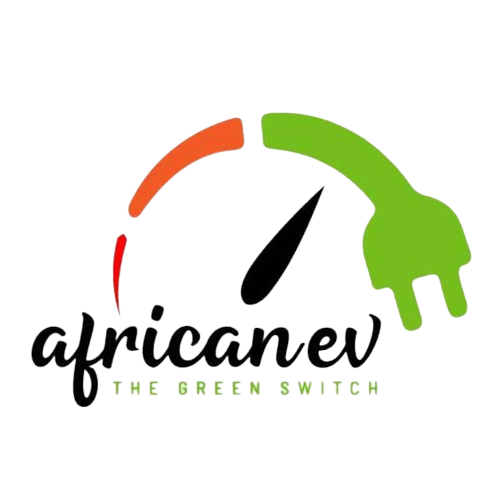By Gad Senyuiedzorm Ashiagbor Founder & Executive Director of AfricaNEV
In a previous article published by ESI Africa, Gad wrote about the opportunities which lie in the energy and transport sector.
In summary:
- The energy and transport industries are in the beginning throes of a major disruption NOT transition.
- There is a lot of money to be made or lost ($11.3 trillion annually).
- It can be potentially very dangerous to assume that just because Africa tends to be technology laggards, we will have sufficient time to adjust to this disruption at our leisure. Dangerous to governments, companies, individuals, towns, cities, villages and organisations of all sorts.
- The disruption of energy and transportation is an elephantine subject, with various complex and interrelated facets. And to eat an elephant, you do so in bits, not all at once.
Read Gad’s previous article here:
Op-ed: The disruption of energy and transportation is here, are you ready?
Today’s article is about the potential effects of disruption on incumbent players in an industry. I will borrow two speeches by two different CEOs. Their companies were/are both dominant players in their industries.
The first is extinct, and the second is having major challenges. One a phone maker, the other an automobile manufacturer. I am talking about Stephen Elop, former CEO of Nokia and Herbert Dyess, current Group CEO of VW. The question is, will history repeat itself? Before the speeches though, some context.

The rise and fall of Nokia
On 9 January 2007, one of the great thespians of the technology world, Steve Jobs unveiled the Apple iPhone. In retrospect, it was an epochal moment for the phone industry.
Before the launch of the iPhone, Apple was known as a computer company that produces both its hardware and software. Their arch-rival at the time, Microsoft, however, produced only software (Microsoft Office). So as rivals usually do, everyone expected Microsoft to follow Apple with a compelling product to compete with Apple’s iPhone.
Have you read?
Agreement signed to develop 500MW renewable energy projects in Chad
There was this famous interview where, the then Microsoft CEO, Steve Ballmer scoffed and laughed at the iPhone after it was launched (search “Steve Ballmer Laughs at iPhone” on YouTube). It is clear to anyone who watched that video that at the time, he had not used the iPhone.
It will be interesting to know whether Steve Ballmer uses an iPhone today. Irrespective of the answer to that question, it will be safe to say he will be using a smartphone with design features pioneered by the iPhone.
A laugh gone wrong
As of 2021, the global smartphone market is worth $273.9 billion. Today, Microsoft is an insignificant player in the mobile phone market: be it the handset or phone operating systems. It can be fairly said that Steve Ballmer’s laughter cost Microsoft a 273.9 billion dollar market. That’s an expensive laugh.
Have you read?
Agreement signed to develop long-duration energy storage projects in SA
The laughter was not the problem though. It’s the lazy blasé attitude of not finding out realities about potentially disruptive technologies and just dismissing them out of hand that was the problem.
So, are you doing a Steve Ballmer? Maybe you are a politician, regulator, business executive, a consumer etc. The concept applies.

A picture they say is worth a thousand words (maybe billions of dollars in this case) and the above graphic is a succinct summary. Remember, as established players, Nokia, Blackberry, Motorola and co have capital, and other resources with which to compete.
Have you read?
New platform to connect consumers and providers of renewable energy
Heck, Microsoft was a bigger and a more dominant player in every dimension compared to Apple, but they still lost. The next two graphics detail how the market shares of Blackberry (RIM) and Nokia were decimated by the iPhone led Smartphone disruption


In 2010, during its market share collapse, Nokia appointed Stephen Elop as its CEO. After a quick look-see. He fired an internal memo that subsequently leaked to the general public. I present to you, “the man on a burning platform” memo.
Is Volkswagen going down the same road?
In 2020, Tesla had what I consider to be an epochal event, The Tesla Battery Investor Day. Sure, the Launch of the Tesla Model S, and Model 3 were impactful. However, during their battery investor day, Tesla demonstrated how they plan to achieve a massive scale that will bring true disruption.
Many people either forget or don’t know that one of the keys behind the iPhone success story was Steve Jobs securing massive manufacturing scale from his supply partners.

Herbert Diess, in January 2020, about eight (8) months before Tesla’s Battery Investor Day gave a speech to some top managers of the Volkswagen group. Dubbed “The Fire Speech”. Remember, Volkswagen is the biggest manufacturer by numbers in the global automotive industry. Followed closely by Toyota of course.
Have you read?
Africa’s economic rebound impacted by COVID-19, Russia-Ukraine war
What I find fascinating are the parallels between Stephen Elop’s “Man On A Burning Platform Memo” and Herbert Diess’ “Fire Speech”. Whether VW, unlike Nokia will survive the disruption of its industry remains to be seen.





